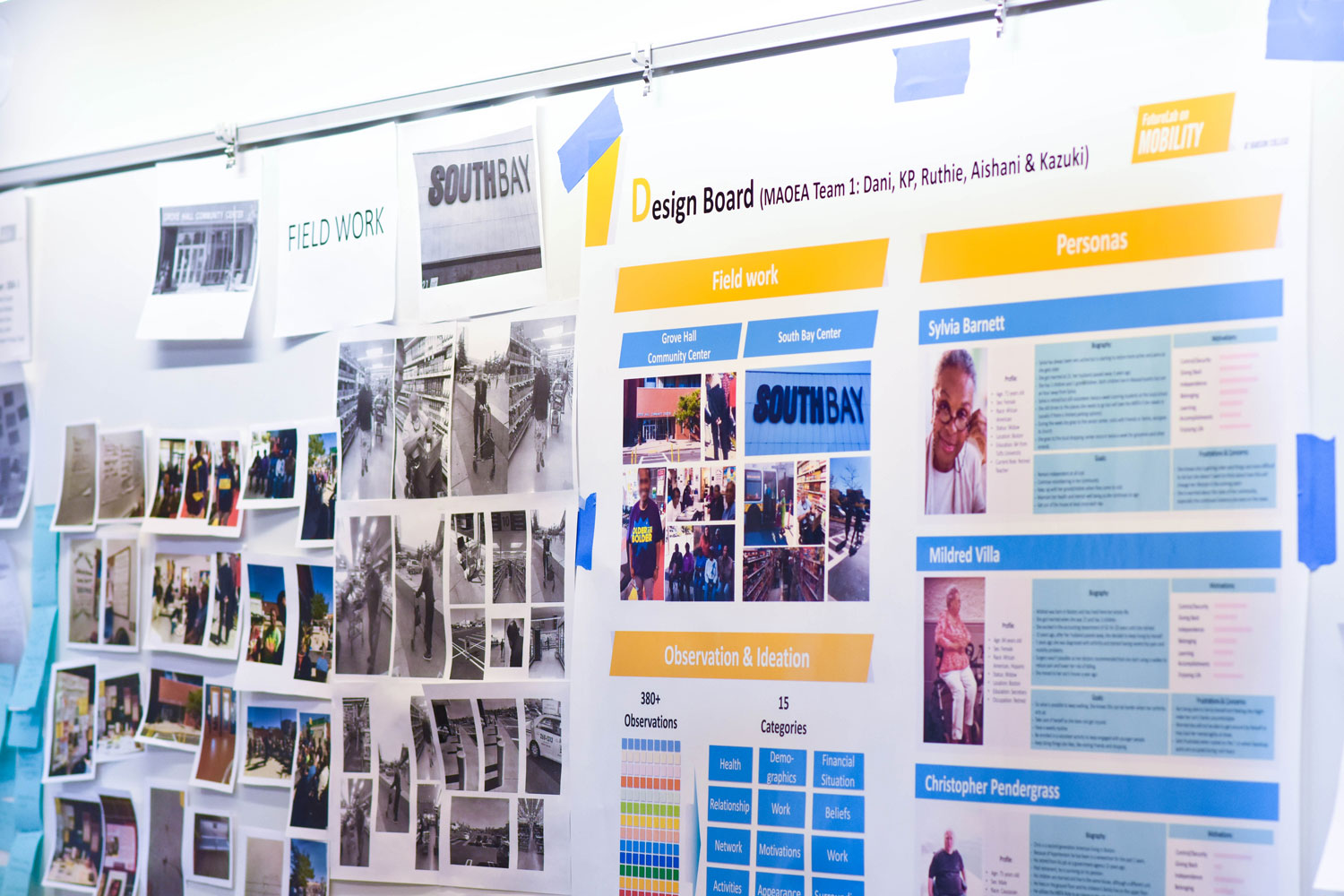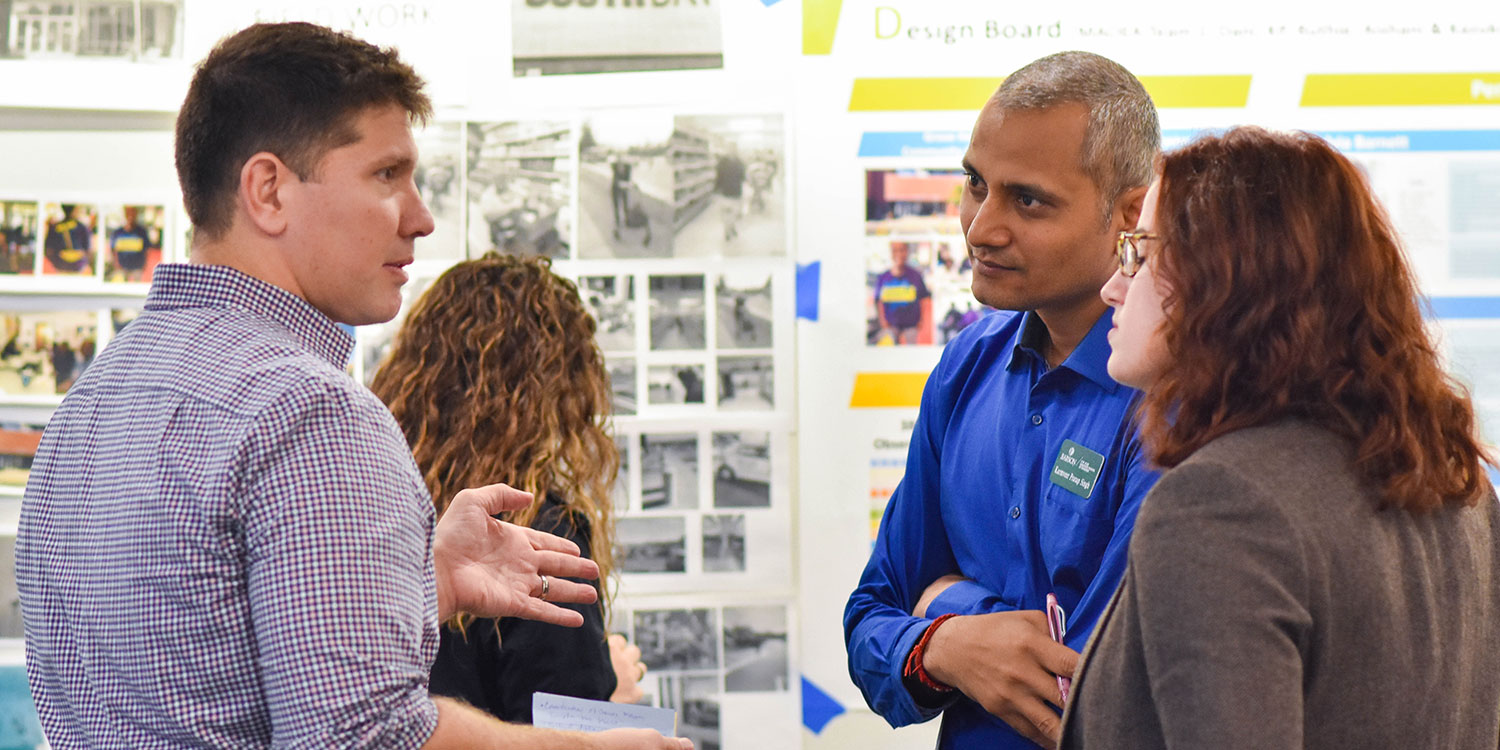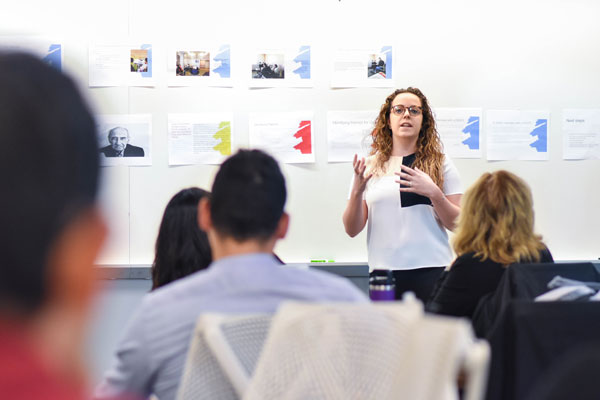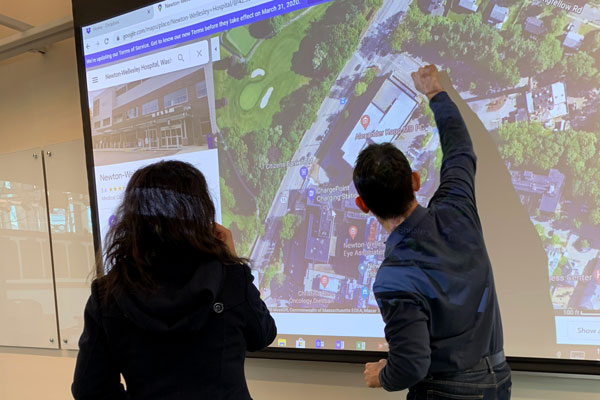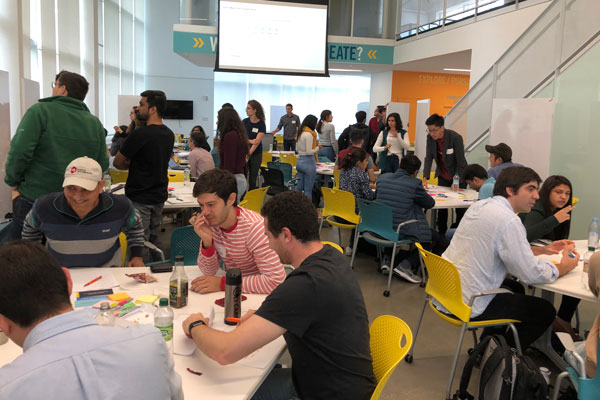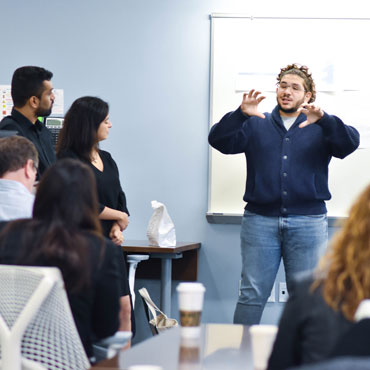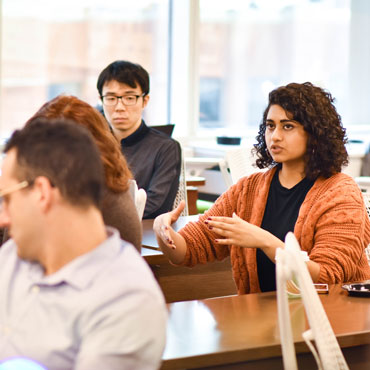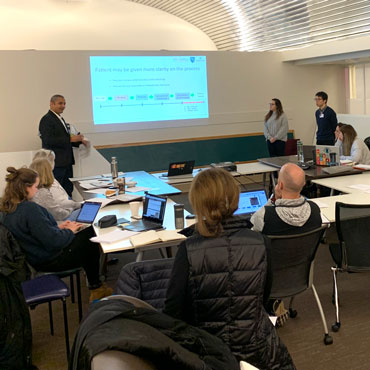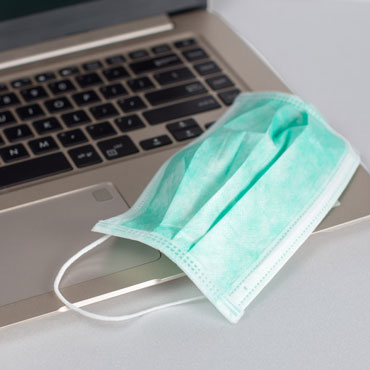FutureLab: Mobility Opportunities
In this fall 2019 MBA course, we partnered with the Massachusetts Bay Transit Authority (MBTA / The RIDE) and the Massachusetts Executive Office of Elder Affairs (EOEA). Together with these partners, we used human-centered design approaches and tools to explore potential ways to optimize The RIDE, the MBTA’s door-to-door, shared-ride paratransit service, and door-through-door (vs. point-to-point) mobility support spanning a spectrum of different lifestages and zones (urban, suburban, exurban, rural) across Massachusetts.
We worked with the Toyota Mobility Foundation to deploy the Toyota Way to identify, clarify, and break down problems; analyze root causes; and propose and test potential countermeasures. Our objective was to validate potential solutions and identify how these might create opportunities for new partnerships, business models, and technology innovation.
FutureLab: Mobility Innovation
We started the spring semester MBA course partnering with Newton-Wellesley Hospital, exploring how mobility interventions can improve the quality of patient care and the efficiency of hospital operations. Unfortunately, we needed to suspend work with the Hospital as they began responding to the growing COVID-19 pandemic. We hope to continue this work in the future, developing specific countermeasures to improve processes and experiences for patients whose hospital stays are over and who are returning home.
Beginning in mid-March, we pivoted the course to remain as relevant as possible with the challenges at the intersection of mobility, healthcare, and the global pandemic. In collaboration with Babson's new Kerry Murphy Healey Center for Global Healthcare Entrepreneurship, we partnered with Harbor Health Services, a group of community health centers in eastern Massachusetts that serve more than 30,000 patients annually. We ideated around the increasing mobility challenges of health care access, such as the accelerating implementation of telemedicine solutions.
Programming & Events
Throughout the academic year, we held a diverse series of events, engaging issue-area experts in informal conversations with a wide array of stakeholders to explore the future of mobility. Topics included understanding the self-driving future, how mobility is disrupting established industries, the intersection of mobility and healthcare, and what needs to change to achieve equity in mobility systems. We also held a "Sustainability Sprint," allowing a large group of students and alumni to work on a real-world challenge to develop a mobility design for social impact.
